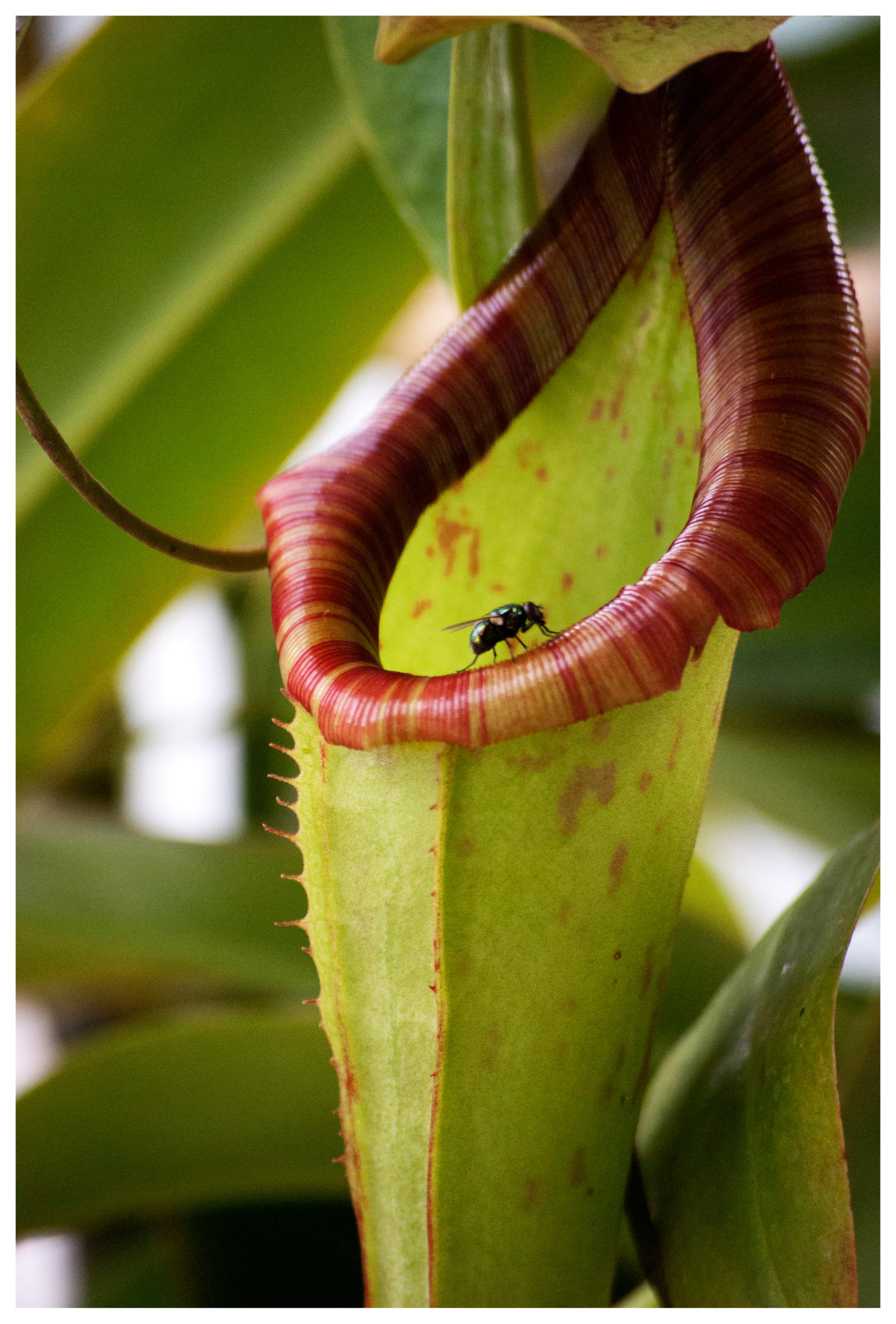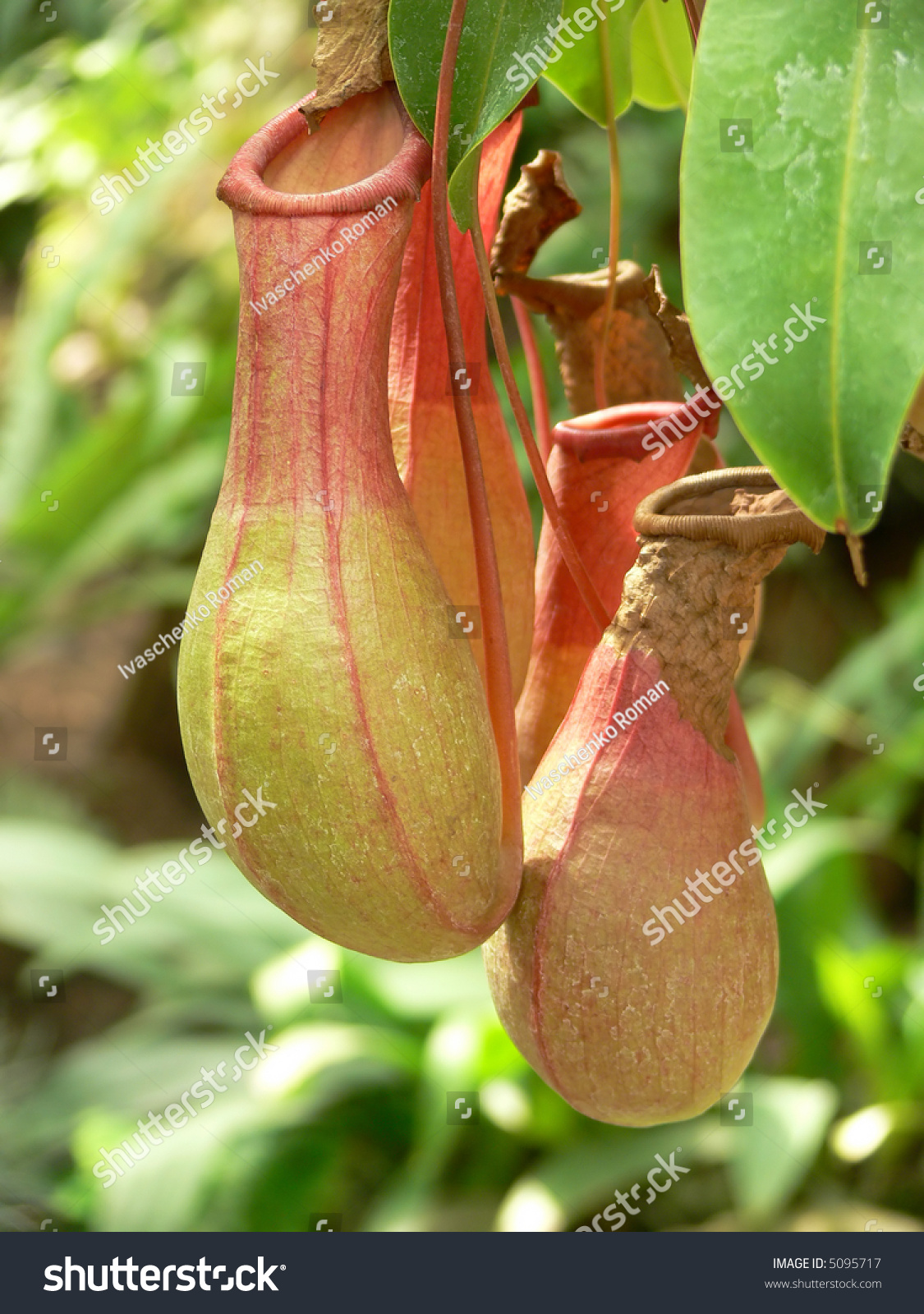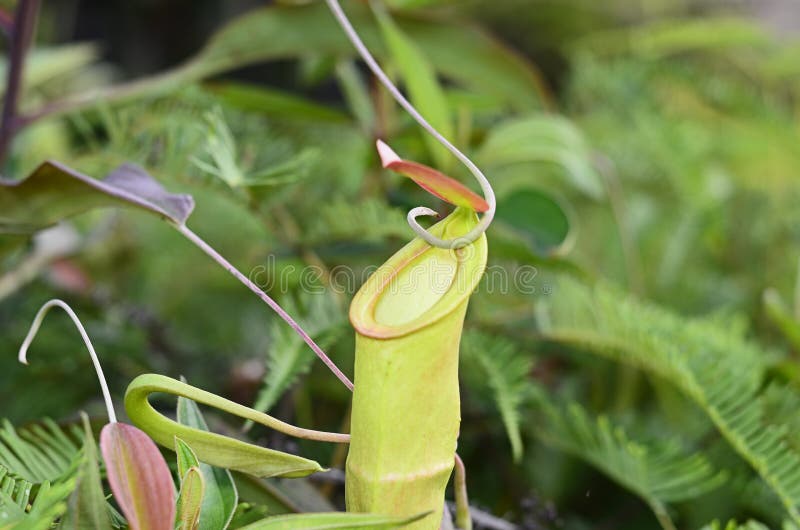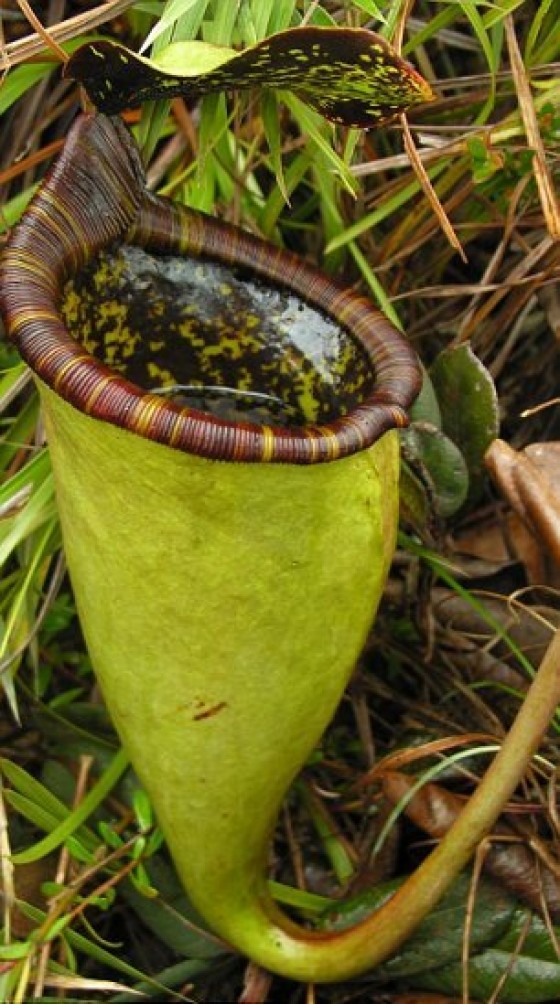
Nepenthe Très jolie plante carnivore (Nepenthes) Eric Montfort Flickr
Avec ses urnes retombant au bout des feuilles, cette plante vivace est tout à fait originale. Plantation du népenthès. Le népenthès est une plante tropicale qui exige une hygrométrie et une température élevées. L'idéal est de placer cette plante dans une salle de bain lumineuse, ou de la cultiver dans un terrarium.

Nepenthes Edwardsiana for Sale Carnivorous plants Canada
Nepenthes ( / nɪˈpɛnθiːz /) is a genus of carnivorous plants, also known as tropical pitcher plants, or monkey cups, in the monotypic family Nepenthaceae. The genus includes about 170 species, [4] and numerous natural and many cultivated hybrids.

Nepenthes rajah is a large pitcher plants, and it's also the largest carnivorous plant in the
Les Nepenthes sont des plantes carnivores de grande taille à pièges passifs originaires principalement des îles d'Asie du sud-est, dans la zone dites de l'Ancien Monde.Ils poussent généralement dans des forêts humides, et aussi bien en plaine qu'en montagne, jusqu'à plus de 3000 mètres d'altitude.

Nepenthes Eden Carnivore Producteur de plantes carnivores
Nepenthes. The Tropical Pitcher Plants have very showy traps on the leaf tendrils. Select among Highland, Lowland, and Hybrid Nepenthes carnivorous plants. Don't forget to include soil with your order of Nepenthes Pitcher Plants. If your nightly low temperature is below 55°F (13°C) we recommend you include a heat pack with your order of.

Nepenthe Tropical Carnivore Plant Stock Photo 5095717 Shutterstock
Hubert le jardinier vous les présente en vidéo. Les népenthès n'aiment pas, contrairement aux autres plantes carnivores, les zones marécageuses. Il leur faut entre 70 et 90 % d'humidité mais pas d'eau stagnante ! Elles conviennent donc bien à nos salles de bain ou à nos vérandas mais à condition que le soleil ne tape pas sur les urnes.

Pin auf Plantes carnivores
Water the soil right after the upper layer feels slightly dry to touch. Never letting the plant dry out completely is an important part of Nepenthes Care. In summer, about twice a thrice a will be enough. On the other hand, once a week is generally enough for the colder days.

картинки лист, цветок, ботаника, Флора, Урна, Ловушка, Хеликония, Арум, цветущее растение
Nepenthes are a tropical variety of the Pitcher Plant found primarily in Southeast Asia, Madagascar, and Australia. These fascinating plants are surprisingly adaptable to indoor environments and make for great, quirky houseplants. Here is how to take care of a Nepenthes plant in your garden or home! Table of Contents Scientific Name Other Names

Nepenthe Water garden, Carnivorous plants, Aquatic plants
Nepenthes, commonly known as the Hanging or Asian Pitcher Plants, doubtless are the most ostentatious carnivorous plants next to the Venus flytrap.Among the most flamboyant and colorful of all plants, they are also extremes in carnivory, for Nepenthes are the only plants in the world that can be said to somewhat regularly eat vertebrates in the wild - small lizards, mice, and even rats have.

Nepenthe Tropical Carnivore Plant Stock Photo Image of maxima, extinction 68293942
Tropical Pitcher Plants (Nepenthes) Growing Tips. Sun: Most Nepenthes enjoy very bright, diffused light or partly sunny conditions. Many can be grown easily on a sunny windowsill. Terrariums with high-powered fluorescent lights are easy to set up and ideal; we recommend four T-5 lights. Water: In greenhouses avoid the tray method of watering.

Une plante carnivore d'1,20 mètre
Common name: Tropical pitcher plant Native of: Old World tropics (largest number of endemic species occurs in Bornea, Sumatra, and Philippines) Greenhouse location: Room F Nepenthes sp. Photo by Terri Greene, Oct25-2016 Nepenthes' shallow root system sends up a climbing stem with alternate, sword-shaped leaves.

Nepenthes (Plante carnivore) Daniel Reversat Flickr
Growing Tips for Nepenthes Tropical Pitcher Plant - Nepenthes spp. Soil: 1:1:1:1:1 peat:sand:perlite:fir bark:chopped Sphagnum. Container: 6" hanging pot. Watering: moist, but well drained. Light: full to part sun, some prefer shade. Temperature: cool for highland species, warm for lowland species. Humidity: medium to high.

Plante carnivore curiozitati despre plantele care se hranesc cu insecte
Au sommaire de cette vidéo : 1) Comment aider son Nepenthes à donner de nouvelles urnes ?2) Quelle est la luminosité la plus adaptée ?3) Comment favoriser un.

Nepenthes 'Smilodon' Carnivorous Plants in Cultivation Carnivorous Plants UK
Seventy percent of Nepenthes are tropical highland or mountain plants, growing at elevations of 3,000 to 10,000 feet above sea level. Above the lowland heat of the rainforest, the mountain climate can be considerably cooler and wetter, especially at night. For more information on how to grow these plants check out our Nepenthes growing tips.

Nepenthe Tropical Carnivore Plant Stock Photo Image of pitfall, botany 27176542
Le Nepenthes regroupe des plantes carnivores à pièges passifs de la Népenthacées. Ce sont des plantes de humide qui complètent leurs apports nutritifs en piégeant les insectes dans des dispositifs en forme d'urne emplie d'un liquide dans lequel ils se noient. Une centaine d'espèces ont déjà été recensées.

NEPENTHES Plantas Exóticas El Rey
Nepenthes are climbing carnivorous plants with impressive hanging pitchers that are the largest of any carnivorous plants. They are native to tropical Southeast Asia, and come in many varieties. Each trap is actually a modified carnivorous leaf, a pitfall trap, with bottoms filled with digestive fluid. Many are on the endangered species list.

paradis express Nepenthes
Les népenthès sont des plantes carnivores de forêt tropicales humides originaires d'Asie du sud-est, de Madagascar, d'Inde et de Nouvelle Calédonie. Contrairement aux autres plantes carnivores, elles sont des plantes grimpantes et ne poussent donc pas dans des sols marécageux. Ce sont des plantes épiphytes (comme certaines orchidées) car elles poussent accrochées aux branches des.